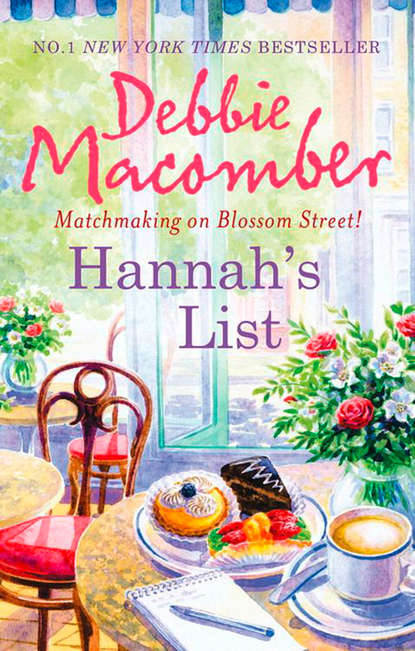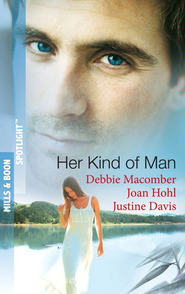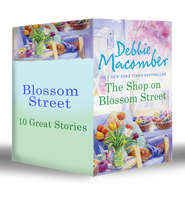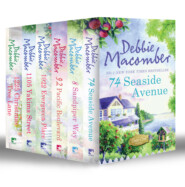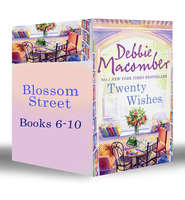По всем вопросам обращайтесь на: info@litportal.ru
(©) 2003-2025.
✖
Hannah's List
Автор
Год написания книги
2019
Настройки чтения
Размер шрифта
Высота строк
Поля
I hesitated. All that awaited me was an empty house and my memories of Hannah.
“Sure.” I didn’t have much of an appetite, though. I rarely did these days.
“Great.” He took a long swig of beer and turned back to the field.
I hadn’t done my brother-in-law any favors by agreeing to attend this game. These weren’t cheap seats, either. Ritchie had paid big bucks for box seats behind home plate, and I’d basically ignored the entire game. I should’ve made an excuse and let him take someone else. But I didn’t want to be alone. Not today. Every other day of the year I was perfectly content with my own company. But not today.
The game must have been over because, almost before I was aware of it, people were leaving.
“Great game,” I said, making the effort.
“We lost,” Ritchie muttered.
I hadn’t been paying enough attention to notice.
Ritchie slapped me on the back and headed out of the stadium. That was his way of telling me he understood.
Half an hour later we sat in a friendly sports bar not far from Safeco Field. I stared at the menu, wishing I could conjure up an appetite. Over the past year I’d lost nearly twenty pounds. Food was a necessity, and that was the only reason I bothered. I usually ate on the run, without interest or forethought. I needed something in my belly so I grabbed a protein bar or a vegetable drink. It served the purpose, although I derived no pleasure from it.
Hannah had been exceptionally talented in the kitchen, just like her cousin Winter Adams, who owned the French Café on Blossom Street. She loved experimenting with recipes and took pride in preparing meals. Hannah’s dinner parties were legendary among our friends. As a hostess, she was a natural—charming and gracious.
“What are you thinking about?” Ritchie asked.
His question startled me until I saw that he was gazing at the menu. “Grilled salmon,” I replied.
“I’m leaning toward the T-bone,” he said.
I’ve always associated steaks with celebration, and this wasn’t a day I’d consider celebrating. Long before I was willing to accept that Hannah had lost her battle with cancer, she’d told me that when she was gone, she didn’t want me to grieve. She said her wake should be as much fun as her parties. At the time I didn’t want to hear her talk about death. By then she’d resigned herself to the outcome; I hadn’t found the courage to do so.
The waitress took our order, brought us each a beer and left. I held the amber bottle between my fingers and frowned at the table. I wished I was better company for Ritchie.
“It’s been a year,” my brother-in-law murmured.
I nodded, acknowledging the comment, but not elaborating on it.
“I miss her.”
Again I nodded. As painful as it was to talk about Hannah, I had the burning desire to do exactly that. I wanted—no, needed—to hold on to her, if not physically, then emotionally.
“Hard to believe it’s been twelve months.” I heard the pain in my own voice but didn’t try to hide it.
“You doing okay?” Ritchie asked.
I shrugged rather than tell the truth—I wasn’t okay. I was damn mad. Still. How dared this happen to a woman as wonderful as Hannah. How dared it happen to me!
Hannah and I were married as soon as I graduated from medical school. We decided that my internship and residency would be too demanding to allow us to start a family right away. Hannah worked for a regional department-store chain as a buyer and loved her job. When I’d get home too exhausted to think, she’d entertain me with stories of the people she’d met. People whose names I soon forgot but whose foibles lived on. The smallest incident became a full-fledged anecdote, complete with wickedly funny observations. She had a way of making the most mundane details fascinating. If I close my eyes I can still hear her laugh. I can smile just recalling the early years of our marriage and the struggles we endured, the things we enjoyed. Memories sustained me that first year without Hannah.
The day I finished my residency and specialized training and was able to join a Seattle practice was the day Hannah threw away her birth control pills. We talked endlessly about our family. I love children and so did Hannah. She wanted three kids; I would’ve been satisfied with two. Hannah felt an odd number would be best, so I said yes to three.
But Hannah didn’t get pregnant. We’d assumed it would be so easy. She worried constantly, and I was convinced the stress she felt was the real problem. After eighteen months she wanted to see a fertility specialist and I agreed. That was when we learned that getting Hannah pregnant was the very least of our concerns. Within a week of our first visit to the specialist, Hannah was diagnosed with stage-four ovarian cancer. By the time the discovery was made, it was too late to save her.
I couldn’t help feeling I should have known, should have suspected that something wasn’t right. As a medical professional, I blamed myself for the fact that Hannah went undiagnosed as long as she did. If I’d paid closer attention, I told myself, I might have picked up on the clues. I’d been busy, preoccupied with work. I had other things on my mind.
Friends have argued with me, friends like Patrick O’Malley, who’s another pediatrician and one of my partners. They frequently reminded me—as did Hannah herself—that ovarian cancer is notoriously lacking in symptoms until it’s too late. I knew all that. What I realized was that I needed to feel guilty, to punish myself; I think I felt better if I could blame myself for not noticing.
“Remember the night Steph and I had you and Hannah over for dinner?” Ritchie asked, breaking into my thoughts. “The last night?”
I nodded. It’d been a Friday evening, the final time we’d gone out as a couple. We’d received news that afternoon that had rocked our world. The latest test results had come in—and they showed that the chemo had done little to slow the progression of the disease.
Devastated, I’d wanted to cancel dinner, but Hannah insisted we go. She’d put on a bright smile and walked into her brother and sister-in-law’s home as though nothing was wrong. I was an emotional mess and barely made it through the evening. Not Hannah. If I hadn’t known, I would never have guessed.
“Yeah, I remember.”
“She asked me to do something for her that night,” Ritchie went on to say.
“Hannah did?” Unable to hide my surprise, I looked up from my beer.
Now Ritchie glanced away. “While you were playing a video game with Max, Hannah spoke with me privately.”
I moved to the edge of my seat. The noise from the television blaring above the bar seemed to fade into the background. Every muscle in my body tensed, almost as if I knew what Ritchie was about to tell me.
“She said the doctors had delivered bad news.”
I focused on an empty bar stool on the other side of the room. “I wanted to cancel dinner. Hannah wouldn’t let me.”
“She had a good reason for wanting to come that night,” Ritchie explained. “She told me there wasn’t any hope left and she’d accepted that she was going to die.”
I wasn’t in the mood to hear this.
Ritchie exhaled loudly. “She wasn’t afraid of dying, you know.”
“Why should she be? Heaven was made for people like Hannah.”
Ritchie nodded, agreeing with me. “She’d made her peace with God long before that night. She never had a fatalistic attitude. She wanted to live. More than anything, she wanted to live.”
At one time I’d doubted that. “I begged her to let me take her to Europe because I’d read about an experimental treatment there. She wouldn’t go.”
“It was too late,” Ritchie said simply. His hand tightened around the beer bottle. “She knew it even if we didn’t.”
That was Hannah—not only was she wise, but forever practical. While she was willing to accept the inevitable, I clung to every shred of hope. I spent hours studying medical journals, calling specialists, doing online research. But my crazed efforts to cure her didn’t make any difference. In the end Hannah had been right; she’d reached the point of no return. She died less than two months later.
Even now I was shocked by how quickly she slipped away. It was the only time in our marriage that I became truly angry with her. I wanted Hannah to fight the cancer. I shouted and paced and slammed my fist against the wall. Gently she took my bleeding knuckles between her own hands and kissed away the pain. What she didn’t seem to understand was that no amount of tenderness would ease the ache of her leaving me.
The waitress brought our meals, but I couldn’t have swallowed a single bite had my life depended on it. Ritchie apparently felt the same because his steak remained untouched for several minutes.
“Hannah asked me to give you this,” my brother-in-law finally said. He pulled an envelope from his jacket.
“A letter?”





